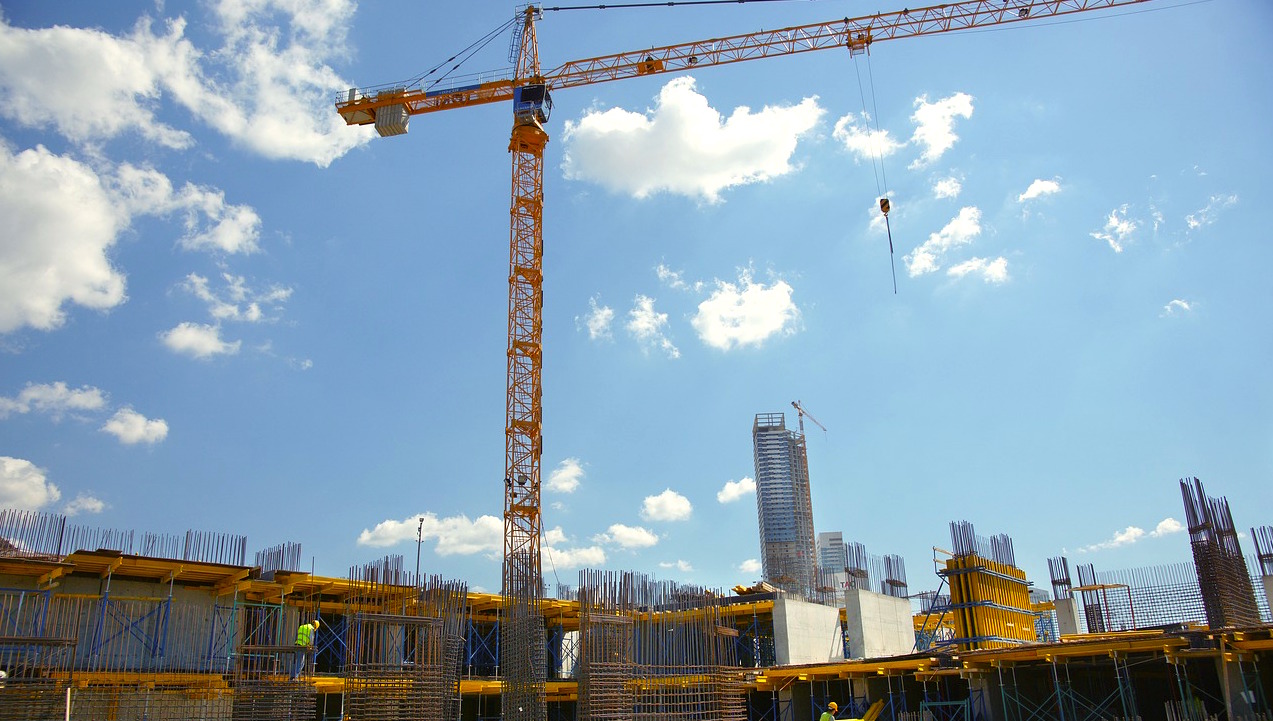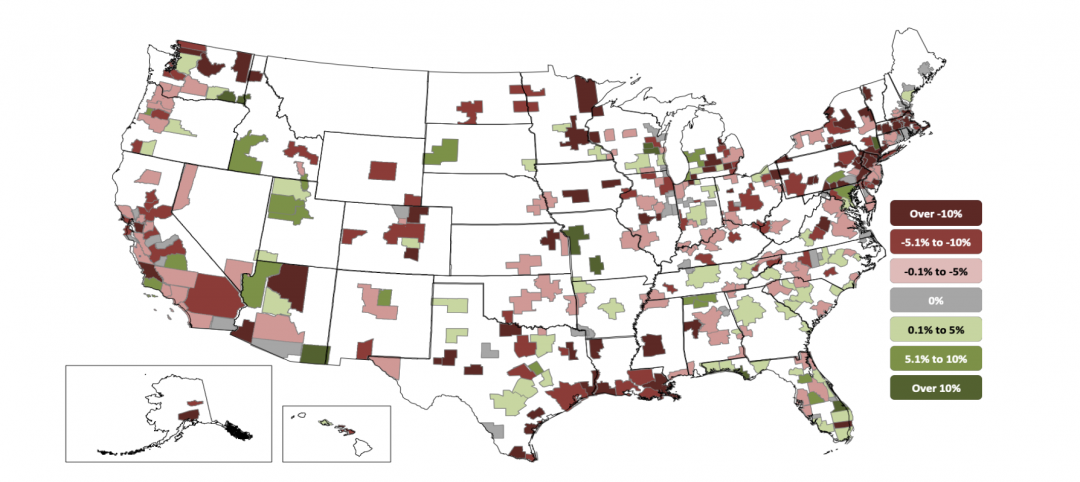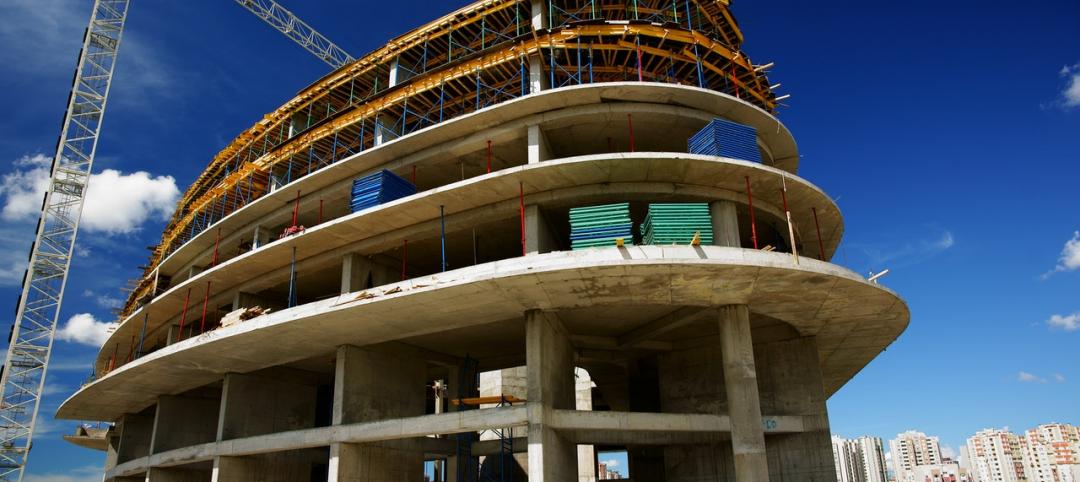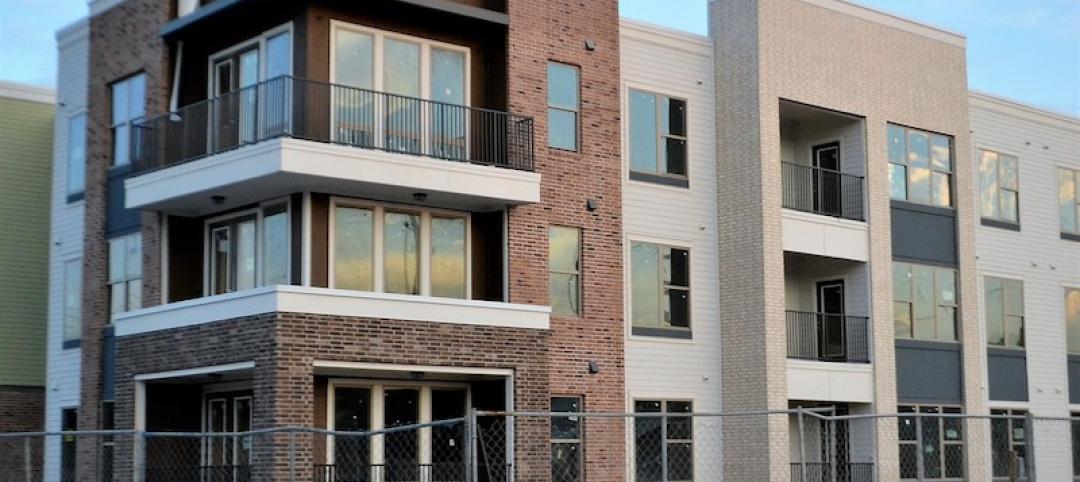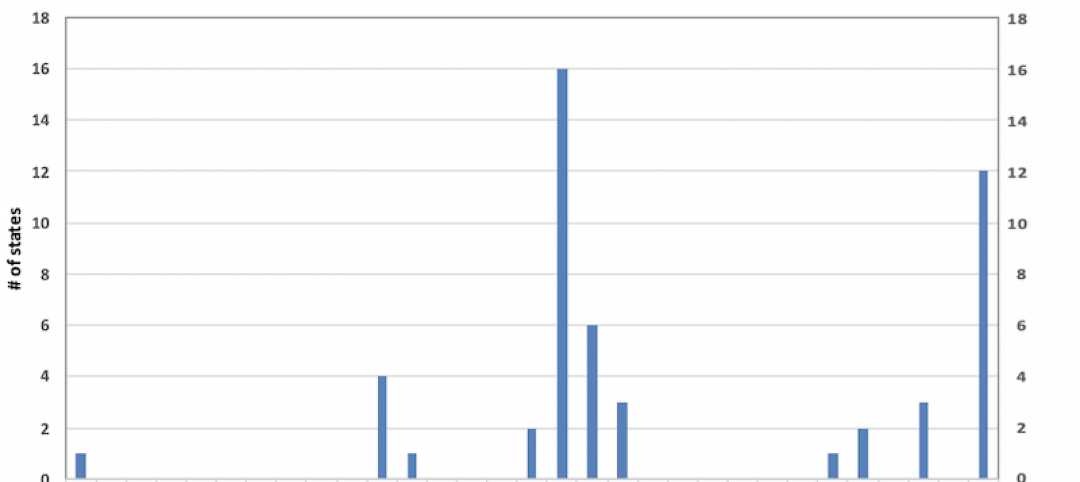Nonresidential construction spending expanded 0.8% in December, totaling $720.4 billion on a seasonally adjusted basis, according to Associated Builders and Contractors’ (ABC) analysis of data released today by the U.S. Census Bureau. This represents the fifth consecutive month during which the pace of nonresidential spending has increased.
Nonresidential spending expanded 0.1% on a year-over-year basis and sits at its highest level since March. Private nonresidential construction spending increased 1.1% for the month, but is down 2.5% year over year, while public nonresidential spending increased 0.4% for the month and 4.4% for the year. Spending in the power and manufacturing categories, which are two of the largest nonresidential subsectors, contracted by a combined 10.3%, or $18.2 billion, since December 2016.
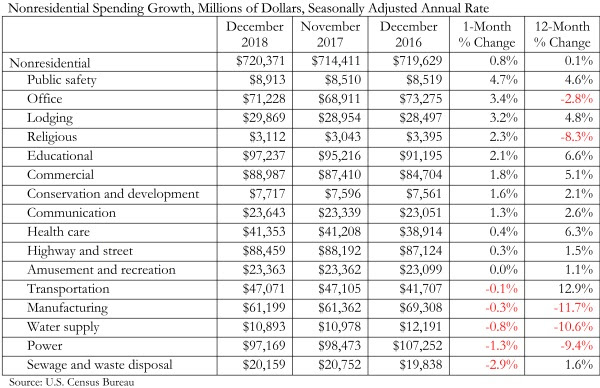
“While data releases are important for many reasons, including helping us to understand what happened in the past, their principal value lies in clarifying our shared understanding of the probable future,” said ABC Chief Economist Anirban Basu. “Today’s data release, which essentially confirms the existence of the ongoing construction expansion cycle, is less useful than usual. The obvious reason is that the December data reflect a pre-existing pattern of construction spending. The future is likely to represent a departure from prior trends, in large measure because of the recently passed tax reform bill.
“Even before the United States enacted tax reform, global and domestic financial systems were flush with liquidity and capital,” said Basu. “The tax cut will further bolster liquidity and confidence, which will ultimately translate into more construction starts and spending. If long-awaited progress is made on infrastructure spending, the construction recovery will likely transition from solid to spectacular. Note that the transportation category has already expanded 12.9% on a year-over-year basis. During much of the past three years, spending growth generally has been concentrated in a number of key private construction segments, while public construction has tended to lag.
“Of course, industry insiders are scratching their collective heads regarding how to amass enough human capital to actually deliver construction services on time and on budget,” said Basu. “Frankly, that’s a mystery. The implication is that any infrastructure package must be accompanied by action that helps expand apprenticeship programs, steps up investment in two-year colleges, encourages high schools to offer career and technical education, and encourages more people to leap into the U.S. labor force.”
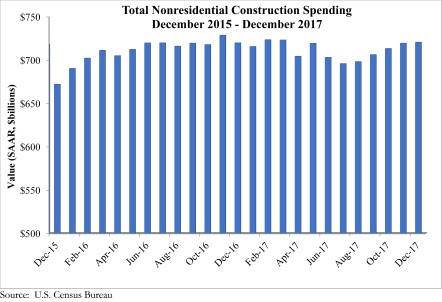
Related Stories
Market Data | Nov 2, 2020
More contractors report canceled projects than starts, survey finds
Construction employment declined in most metros in latest 12 months.
Multifamily Housing | Oct 30, 2020
The Weekly show: Multifamily security tips, the state of construction industry research, and AGC's market update
BD+C editors speak with experts from AGC, Charles Pankow Foundation, and Silva Consultants on the October 29 episode of "The Weekly." The episode is available for viewing on demand.
Hotel Facilities | Oct 27, 2020
Hotel construction pipeline dips 7% in Q3 2020
Hospitality developers continue to closely monitor the impact the coronavirus will have on travel demand, according to Lodging Econometrics.
Market Data | Oct 22, 2020
Multifamily’s long-term outlook rebounds to pre-covid levels in Q3
Slump was a short one for multifamily market as 3rd quarter proposal activity soars.
Market Data | Oct 21, 2020
Architectural billings slowdown moderated in September
AIA’s ABI score for September was 47.0 compared to 40.0 in August.
Market Data | Oct 21, 2020
Only eight states top February peak construction employment despite gains in 32 states last month
California and Vermont post worst losses since February as Virginia and South Dakota add the most.
Market Data | Oct 20, 2020
AIA releases updated contracts for multi-family residential and prototype residential projects
New resources provide insights into mitigating and managing risk on complex residential design and construction projects.
Market Data | Oct 20, 2020
Construction officials call on Trump and Biden to establish a nationwide vaccine distribution plan to avoid confusion and delays
Officials say nationwide plan should set clear distribution priorities.
Market Data | Oct 19, 2020
5 must reads for the AEC industry today: October 19, 2020
Lower cost metros outperform pricey gateway markets and E-commerce fuels industrial's unstoppable engine.
Market Data | Oct 19, 2020
Lower-cost metros continue to outperform pricey gateway markets, Yardi Matrix reports
But year-over-year multifamily trendline remained negative at -0.3%, unchanged from July.


